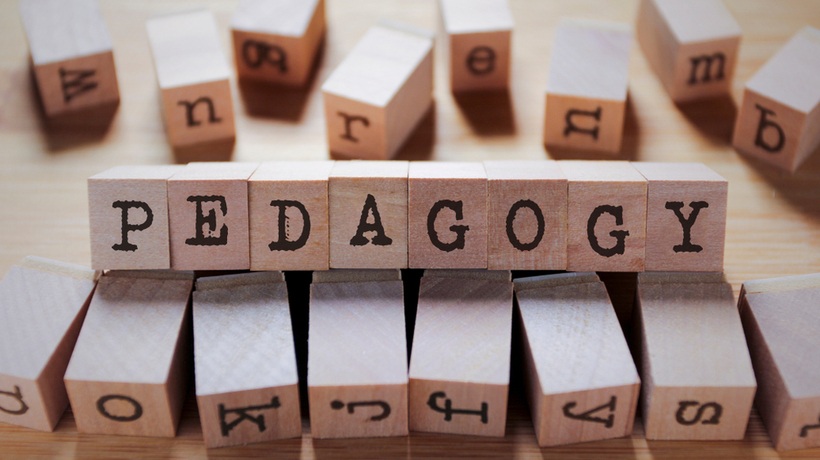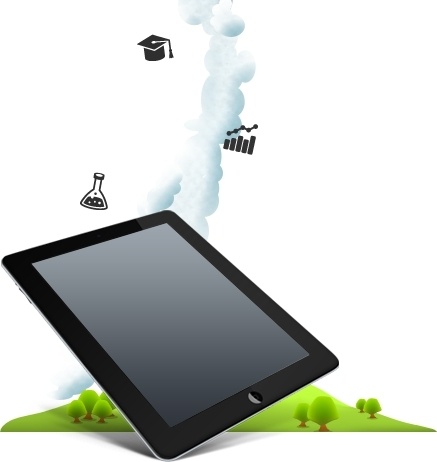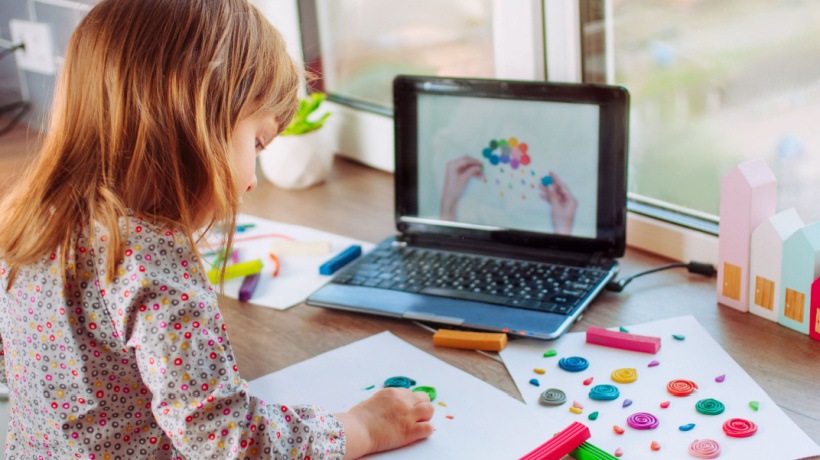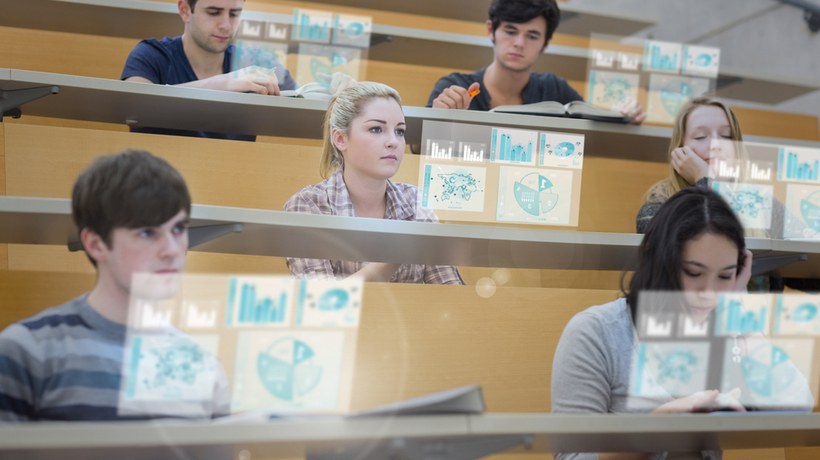Education Is Forced To Open Its Eyes
COVID-19 created a frenzied dash to online learning and a new interest in Instructional Design and online practices. Throughout this process and despite the rush, instructors were interested and invested in exploring design elements, pedagogy, methodology, and best practices. What followed were many wonderful opportunities to discuss and tease out the principles of online andragogy and pedagogy (from here on referred together as “pedagogy”) that are important not only for online teaching but for the reality of teaching students in any modality in the 21st century.
The pandemic amplified and accelerated our awareness of how much we were already living in a merged digital and physical reality. This recognition meant that the solutions we were applying in crisis were, in a way, actually overdue. The crisis wasn’t normal, but our online experience was! Educators weren’t adapting to a future in this process, we were catching up with the present. It’s a scenario that is happening across many different sectors of society including especially the business sector.
Academia is often wrought to compare our institutions to the world of business, but the crisis exacerbates the reality that we still do operate with a necessity for revenue. Businesses often get something very right: in crisis they take the time to challenge their foundations and retool to thrive. Just as the business world has been reflecting on what the rapid transition to online means for the future of work, we in education should be thinking about the long-term ramifications for the future of teaching and learning.
The crisis requires a balancing act between maintaining pre-existing academic standards and meeting the moment for online delivery. In higher ed, that means asking questions about academic rigor, quality, work hours and equivalence. COVID-19 has forced us to become reflective about pedagogy by not only transforming our approach but re-evaluating our current and historical methodologies. In other words, it wasn’t that we needed to adapt to technology but rather to the ways we were teaching.
It is in that spirit of reflection that we offer the following as a set of initial steps toward a 21st century pedagogy. We hope this will act as a guide and a springboard to further advancing the field of education for students that learn in an increasingly integrated online and physical world.
Teaching Is Teaching Regardless Of Modality
Modalities of education and the experiences of education have changed dramatically over the centuries, adapting to technology and to the needs of the culture. Most people seem to believe that the process of transitioning to online teaching is a conversion from on-ground to online. Yet what many have actually been experiencing is the process of course creation, not conversion. It is a process that involves curriculum review, outcomes, and objectives thinking—and the deliberate process of creating experiences.
Just because our teaching approach may adapt, that does not mean that the intended academic standards slip. Academia is often caught up in questioning the "ifs" and "ofs" in a situation rather than allowing itself to explore the freedom around the "hows." If we are honest with ourselves, we see that the learning outcomes are the same or perhaps sometimes even strengthened by this review process. The 21st century reality forces us to rethink our biases and to accept that people teaching and learning happens anywhere—in any modality, if it’s done well.
Social Learning Happens Anywhere And Everywhere
What we all quickly learned from quarantine was that social distancing and physical distancing weren’t the same thing. Instead, the social world was still active and available to us and was very necessary for our mental health; changed admittedly, but still there. Communications and information technology really kept us connected even as we were physically apart. Of course, that was true even before the pandemic but we were forced to see how much it was a part of our lives.
A 21st century pedagogy must appreciate the interwoven digital/physical nature of our social-emotional world. This is not to say there isn’t a difference between the two environments, but at our core we must recognize that these are entwined in a permanent way. It will be imperative for teachers and students to recognize the implications of this social space. It’s in many ways a more individualized experience of the world; one that allows students more freedom to work in conjunction with professors. A space that can establish new and diverse paths of knowledge, in a cognitive context and in a creative way. By embracing this new social environment, higher education would be setting students up with a constructive view of knowledge that brings the student in as a unique and original individual.
Creativity Will Be Key
To paraphrase the educator/theologian Parker Palmer in To Know as We are Known, we must adapt our understanding of how we think people approach knowing if we are to truly teach them. This means recognizing that the physical and digital spaces of our experiences have impacted the way we perceive the world. From impacts to perceptions of authority, to expectations of communication and transactions, these beginnings of our 21st century are markedly different from the beginnings of the 20th. The pandemic has forced us to reflect on how much we have changed as a society.
In recognition of this reality, our pedagogy must become creative, flexible, and reflective; meeting our students’ life experience. It is imperative that our teaching leave room for students to learn within not only their identity, but where they sit academically. Teaching is about meeting students where they are and then helping them advance. As educators, we must understand who our students are and how they experience the world; indeed how we experience the world. When we teach without this intersectionality of understanding, we fail and we pass that failure to students to hold as their burden. That failure is due to a lack of creativity in our learning spaces, a lack of understanding in our pedagogy and the historically reductionist view weaved into higher education itself. The burden is our own.
The 21st Century Pedagogy
What if education treated the lessons of this crisis—the acceptance of teaching regardless of modality, the awareness of a dynamic social environment, and the reality of new experience—as the bedrock of the next step in teaching rather than the pebble that tripped us on the road? As academics, administrators, and innovators its our charge to not only teach about the times, but to remain relevant along with them.
We believe these three guiding ideas may help propel the conversation around pedagogy for our next era in a good direction. Higher education is in an ideal place to lead and push change; to demonstrate the reciprocal action between process, mastery, and its learning spaces where groups and individuals alike can produce something that is both new and necessary to the overall community, and that fuel is creativity.[1]
It’s a truly unique opportunity for entities that often resist change and rely heavily on tradition. Higher education can take advantage of bringing creative education into the classroom. “Developing alternative, more inclusive, more interval forms of education is an enormously exciting challenge, but it is clearly not without pitfalls [2]." Now is the perfect time for our systems to create the pedagogical revolution for the next era in education.
References:
[1] Plucker, J., Beghetto, R. A., & Dow, G. (2004). Why isn’t creativity more important to educational psychologists? Potential, pitfalls, and future directions in creativity research. Educational Psychologist, 39, 83–96.
[2] Montuori, Alfonso. (2006). The Quest for a New Education: From Oppositional Identities to Creative Inquiry. Revision: A Journal of Consciousness and Transformation. 28. 4-20. 10.3200/REVN.28.3.4-20.









